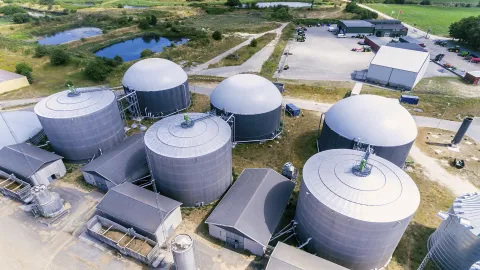BioPaavo, a business accelerator at Jamk University of Applied Sciences, will start together with Kasvu Open and on behalf of YIT Corporation to seek bio-based and environmentally friendly alternatives to dust binding on gravel roads. YIT's goal is to use hackathon to find new ecological materials that would effectively bind dust particles together in the surface treatment of gravel roads or form a film on the surface of gravel roads. The materials must not be harmful to groundwater or the environment.
"New alternative materials can be found, for example, in industrial side streams," says Turkka Mäkilä, Development Manager at YIT Suomi Oy. "The need for alternative solutions is great, because environmental values are becoming more and more important for road maintenance customers."
Salts are currently used for dust binding on gravel roads, the use of which is being reduced due to environmental impacts. Finland has approximately 100,000 kilometres of gravel terrain, with 50,000 tonnes of dust binding materials used annually for dust binding. The most used material is calcium chloride salt, which binds moisture on gravel roads. New, alternative materials could also improve the structure of the surface of roads, thus achieving a longer-term effect and several years of efficiency. In this case, the solution could reduce the number of times roads are levelled and the need for processing, and thus be much more cost-effective and ecological.
"We expect that in the hackathon we can work together, boldly and innovatively towards new solutions for dust binding on gravel roads. YIT is interested in assigning potential partners a pilot site where alternative methods can be tested and piloted in cooperation," Turkka Mäkilä says.
Annimari Lehtomäki, Chief Specialist at the Jamk Bioeconomy Institute, explains why it is worth participating in the hackathon: "New alternative materials for dust binding can be found in the side streams of the forest, chemical, food, construction or energy industries, for example. Participants get to acid test their ideas and receive immediate feedback from a potential customer. Hackathon is an opportunity for new business and long-term cooperation with the client company. The finalists will have a multidisciplinary team of experts as sparring partners in perfecting solutions, and we should not forget the networks that are built in the hackathon!"
There is time to register for YITHackathon until 9 October 2022, after which the teams that can access the actual hackathon will be selected. The hackathon challenge will culminate on 17 November 2022, when a winner or winners will be selected.
Hackathon is open to all interested parties: companies, research institutes, training organisations and students, as well as other actors.
The Bioeconomy Business Accelerator Saarijärvi (BioPaavo) project is implemented by the Bioeconomy Institute of Jamk University of Applied Sciences and is funded by the Association of Central Finland with the support of the European Regional Development Fund and Sitra and the City of Saarijärvi.
More info on:
www.biopaavo.fi
Annimari Lehtomäki, Chief Specialist
[email protected]
Tel. +358 50 464 2563
Jamk University of Applied Sciences
Turkka Mäkilä, Development Manager
[email protected]
Tel. +358 40 839 9834
YIT Suomi Oy
The YIT Group is the largest Finnish and major northern European project developer and construction company. YIT operates in four different business areas: business premises, real estate development, housing and infrastructure. YIT's infrastructure segment aims to create the foundations of a sustainable society and enable better competitiveness and maintain the built infrastructure. YIT Group's net sales in 2021 were EUR 2.9 billion, and the Group employed more than 7,000 people in several countries in Northern and Central Europe.



